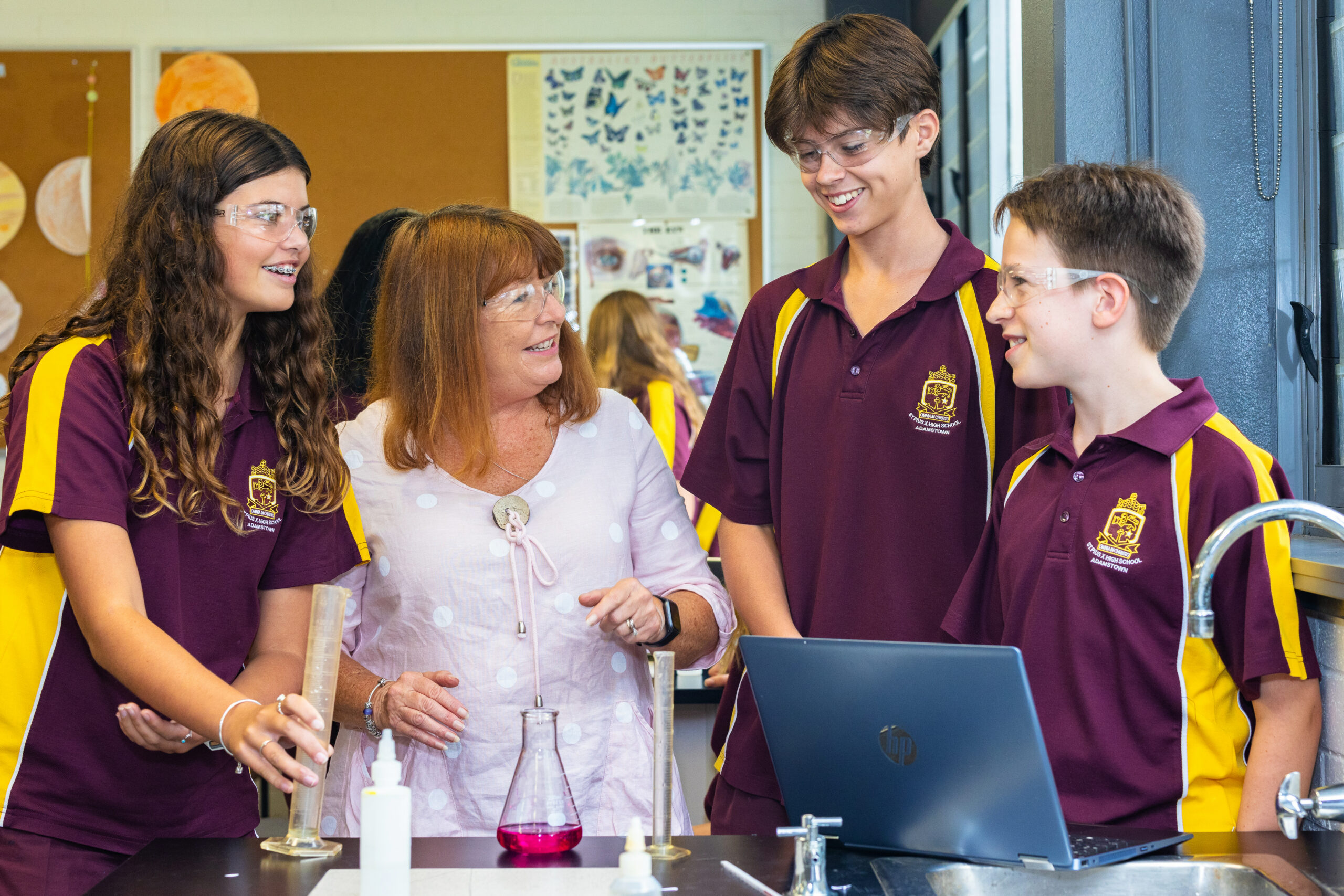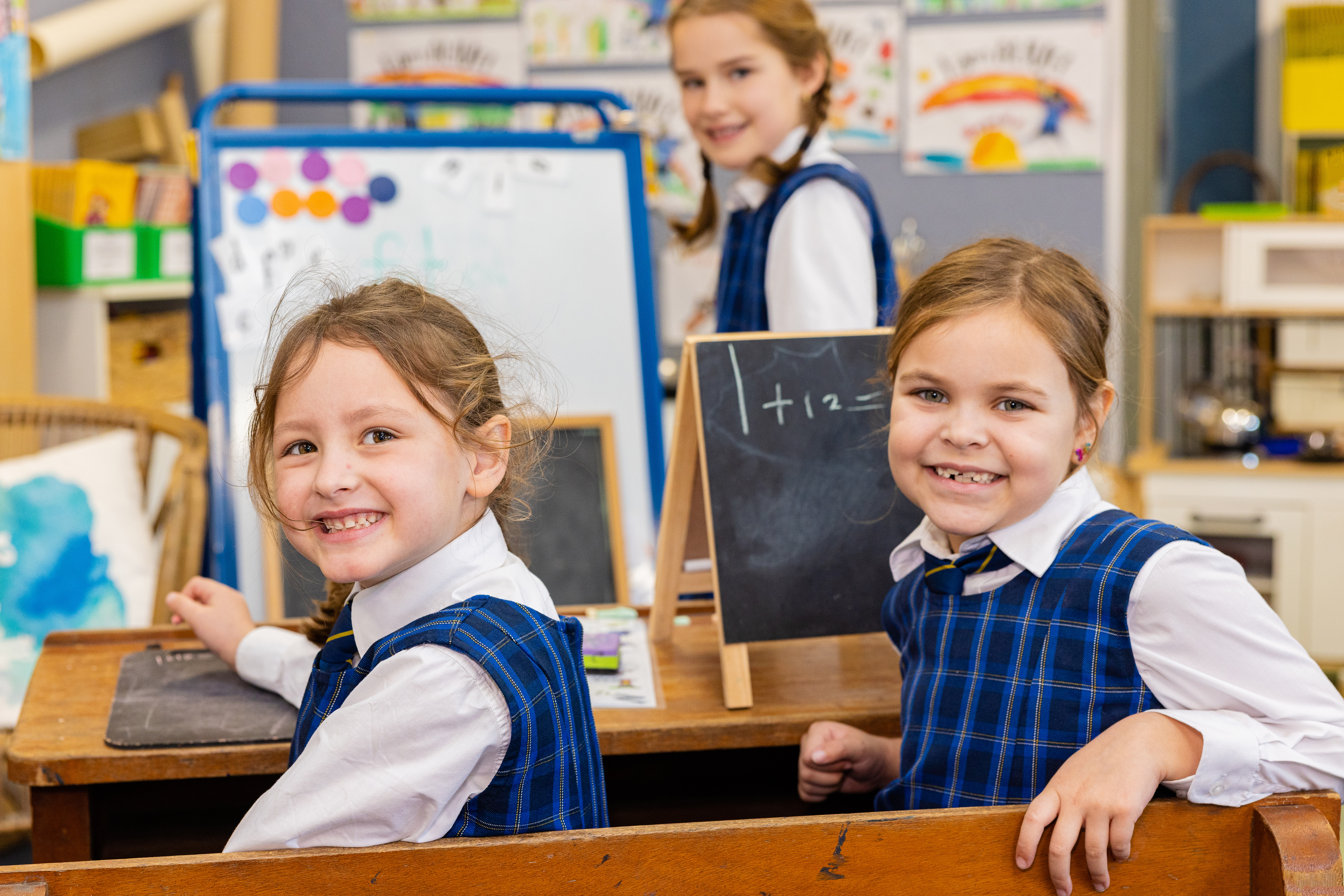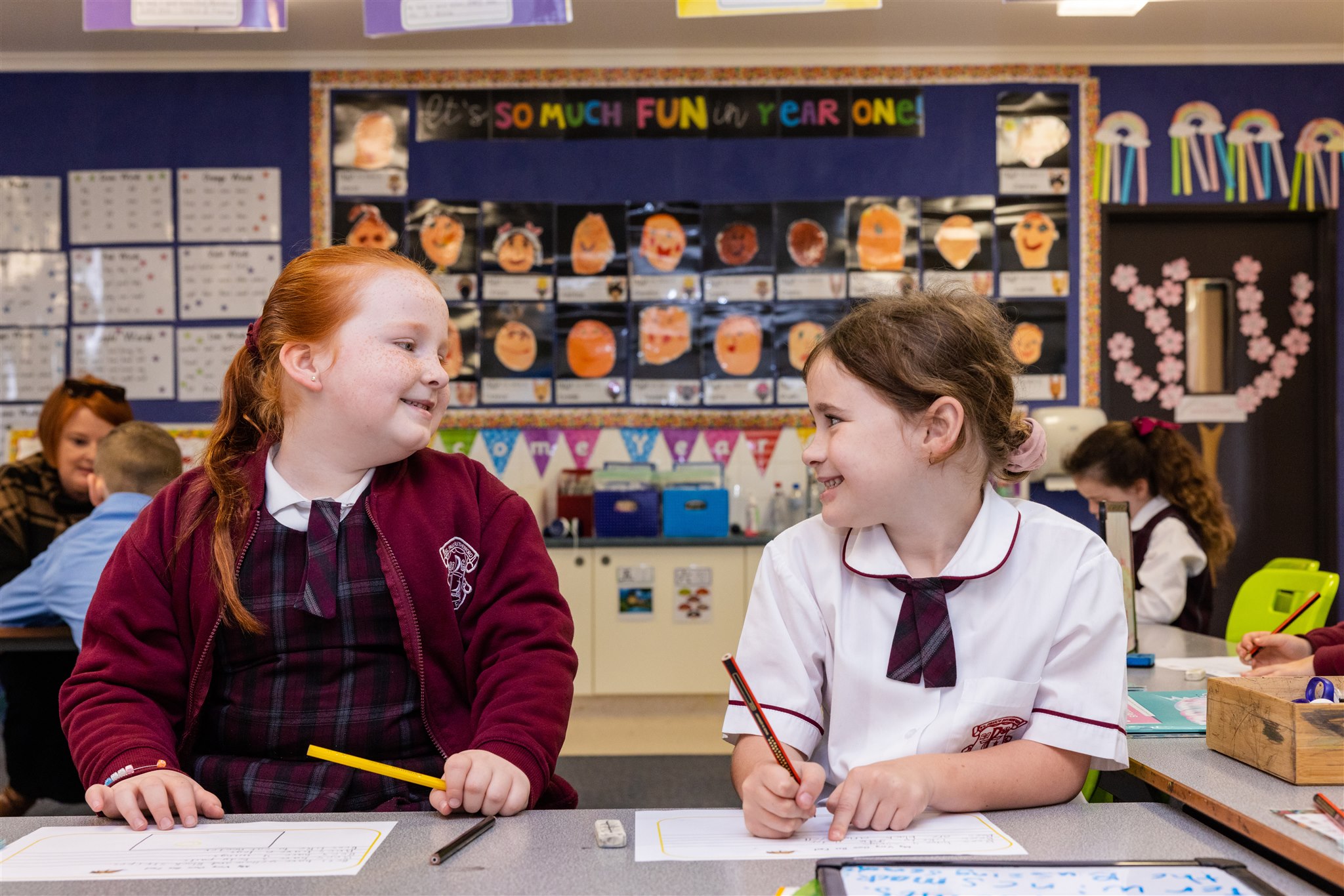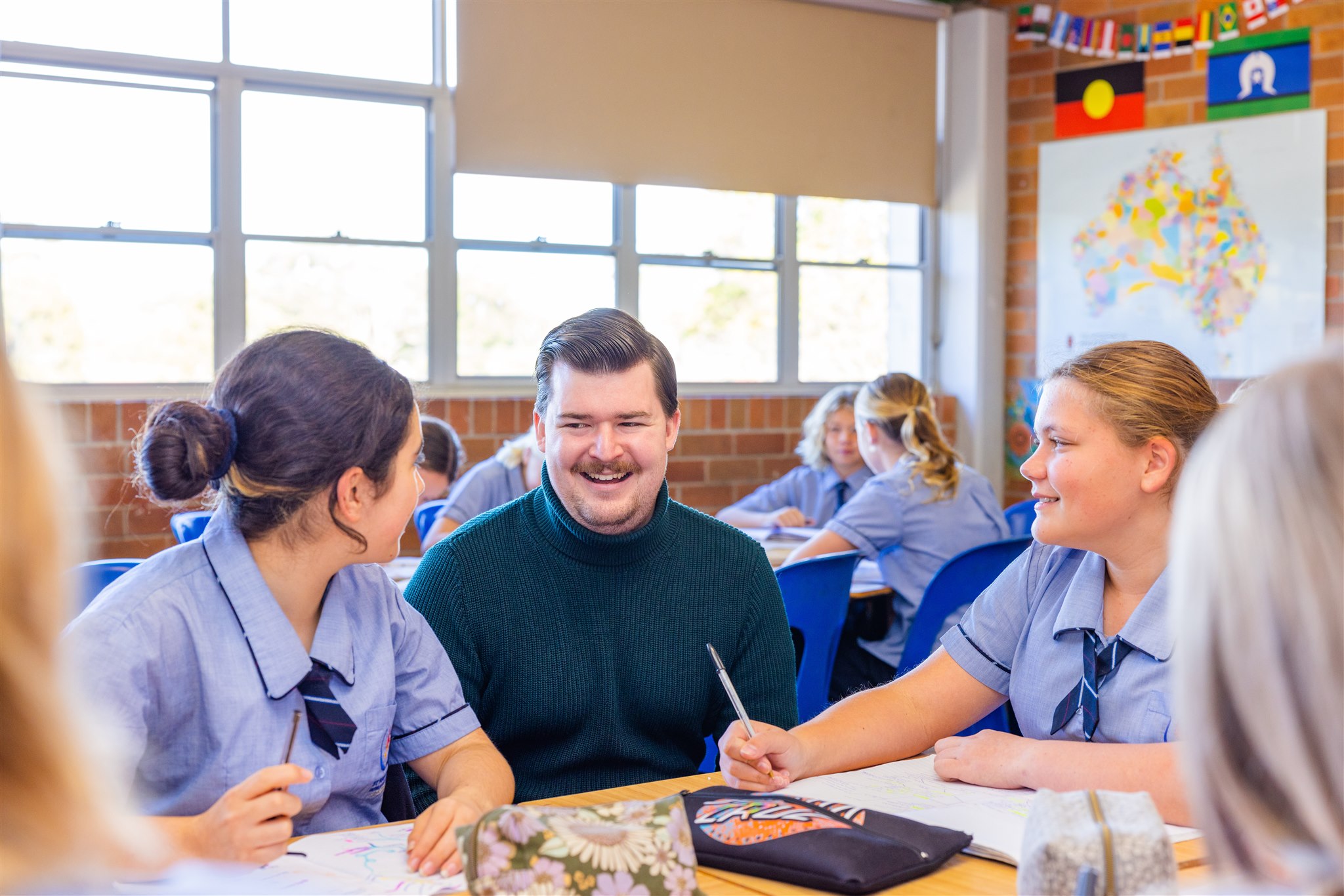
Teaching and Learning
Catholic schools base their teaching and learning programs on the NSW Education Standards Authority (NESA) syllabuses for Key Learning Areas, with Religious Education at the core of their curriculum.
In 2014 NSW schools began teaching a new Curriculum for Kindergarten – Year 10 in English Mathematics, Science and History. These new curriculum documents for teachers were developed by NESA for all schools in NSW and incorporate the agreed content from the Australian Curriculum Assessment and Reporting Authority (ACARA) national curriculum.
Curriculum
The Curriculum is structured around the outcomes and content for each learning area. The learning curriculum includes literacy, numeracy, information and communication technology, critical and creative thinking, ethical behaviour, personal and social competence and intercultural understanding.
Literacy and Numeracy
The Literacy and Numeracy Framework for Catholic Schools developed by the Catholic Schools Office sets broad parameters and identifies core beliefs and evidenced-based principles on which schools can base their own planning to achieve literacy and numeracy achievements for all students.
Catholic schools in the Diocese of Maitland-Newcastle are communities of learning characterised by high expectations for learners to achieve excellence, academic rigour, innovation, and purpose, within environments that engage, empower, and enable (Maitland Newcastle Learning Framework 2017).
As such we believe that:
- Parents/carers are our learners’ first teachers and system, and school leadership teams work towards establishing and maintaining community–home school relationships.
- The teaching of literacy and numeracy is a core responsibility of schools.
- All students can achieve high standards in literacy and numeracy given the right time and the right instruction and support.
- High expectations and early and ongoing intervention are essential.
An effective system approach to literacy and numeracy is informed by evidence-based practice and the use of high impact strategies for the teaching of literacy and numeracy including:
- High expectations for all learners communicated through teacher talk and action and active support and encouragement for students to experiment and persist in their learning.
- Explicit teaching of literacy and numeracy skills.
- Effective assessment strategies which monitor student progress and inform future learning goals.
- Differentiated Teaching to extend the knowledge and skills of every student in every class.
- Response to Intervention providing increasing levels of support to students based on how well they respond to instruction.
- Descriptive Feedback informing students and teachers about the student’s performance that leads to achieving a learning goal.
- Collaborative Learning developing higher-level thinking, oral communication and leadership skills.
- Metacognitive Strategies and Questioning teaching students to think about their own thinking.
The Literacy and Numeracy Framework outlines the shared commitment to ensure that actions across our diocese are aligned to provide the best outcomes for our learners. Guidelines for teaching literacy and numeracy within the English and Mathematics lesson in primary and across the curriculum in primary and secondary provide system-wide guidance that describe evidence-based principles for the teaching of literacy and numeracy.
Schools in the Diocese of Maitland-Newcastle implement the NSW Education and Standards Authority (NESA) syllabus in English and Mathematics.
Contemporary Learning
Classrooms in our schools are characterised by cultures of learning that are adaptive, innovative and continuously improving. They are places that promote curiosity, creativity and risk taking.
Our educators draw on evidence-informed practices to cater for individual students’ learning needs, levels of readiness, interests and motivations. Learning is designed to engage, challenge, extend and meet the diverse learning needs of all students.
We aim to inspire our students to become curious, self-directed, lifelong learners by exposing them to a variety of rich learning experiences incorporating critical thinking, collaboration, creativity and communication.
Our schools empower students to flourish as citizens of the world and excel in all they do.
The Higher School Certificate
The desired outcome of the Higher School Certificate (HSC) is to leave each student in a position to take the next meaningful step in their lives, in terms of training and careers. Secondary schools in the Diocese of Maitland-Newcastle are certainly achieving this, preparing students whose attitudes and aptitudes vary enormously, for work, for the community and for life.
The Higher School Certificate is a locally, nationally and internationally recognised qualification for students who successfully complete secondary education in NSW. The NSW Education Standards Authority (NESA) website outlines that students “will receive an HSC Course Report for each course they complete which will describe their level of achievement as well as the standards reached by other students in the course. The syllabus makes it clear to everyone just what students are expected to learn and be able to do in each course by the end of Year 12”. Find out more.
Completing the Higher School Certificate requires focus and a commitment to learning about each subject area, recognising the benefits that come with investing in time to study. Catholic schools support students, especially the less academically able, to attain their ‘personal best’.
Dual Accreditation
Gaining your HSC and a Trade Certificate while at school
A feature of senior studies these days is the huge variety of subjects on offer. English and Mathematics, Economics and Physics are familiar to all, but an evolving curriculum also offers Metals and Engineering, Automotive Studies, Business Services, Entertainment Studies, Building and Construction, Software Design and Development and Hospitality – and more.
There are many new Vocational Education and Training (VET) courses available as part of the HSC which earn students nationally recognised industry qualifications. Each of the senior secondary campuses in the diocese offer vocational studies to students.
Not only does this form of training encourage students to remain at school until year 12, but it allows them to enter into a school-based traineeship or apprenticeship while at school. This can result in students achieving dual accreditation, i.e., HSC and a Certificate II at school and subsequently making them highly competitive and employable from an early age.










